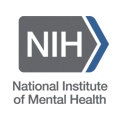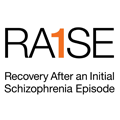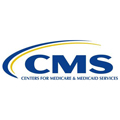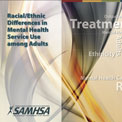Science Updates About Mental Health Services Research
- Developing Tools for Measuring Mental Health Outcomes
-
The National Institutes of Health has funded six projects to develop, test, and validate outcome-focused quality measures for mental health, which are used to understand the impact of interventions when implemented in real-world health care systems and settings.
- Collaborative Care Could Help Reduce Disparities in Mental Health Treatment
-
In an NIMH-funded study, a comprehensive collaborative care intervention significantly reduced post-traumatic stress disorder (PTSD) symptoms among trauma patients from racial and ethnic minority backgrounds.
- Understanding the Availability of Mental Telehealth Services
-
In an NIMH-funded study, researchers examine the availability and structure of mental telehealth services.
- Saving Lives Through the Science of Suicide Prevention
-
• 75th Anniversary
Evidence-based efforts to improve suicide risk screening, assessment, and intervention are helping to save lives, thanks to research supported by NIMH.
- RAISE-ing the Standard of Care for Schizophrenia: The Rapid Adoption of Coordinated Specialty Care in the United States
-
• 75th Anniversary
The Recovery After an Initial Schizophrenia Episode research initiative, launched by NIMH to test the effectiveness of coordinated specialty care to treat first-episode psychosis, has transformed the mental health landscape in the United States and helped thousands of people with schizophrenia achieve better outcomes.
- Medicaid Data Show Wide Differences in Mental Health Care in the United States
-
A new NIMH-supported study revealed differences in rates of mental health care among Medicaid enrollees based on where they live in the United States.
- Long-acting antiretroviral therapy suppresses HIV among people with unstable housing, mental illnesses, substance use disorder
-
A long-acting antiretroviral treatment given every four to eight weeks, and delivered with comprehensive support services, suppressed HIV in people who were previously not virologically suppressed.
- Rare Genetic Variation in 10 Genes Substantially Raise the Risk for Schizophrenia
-
In one of the largest genetic studies of its kind researchers funded by the National Institute of Mental Health identified variations in 10 genes that significantly raise the risk for schizophrenia—information that could help identify new treatment targets.
- NIMH Turns Challenges into Opportunities
-
The recent NIMH Mental Health Services Research conference covered a range of topics, including mental health equity, policy, and funding.
- Media Advisory: NIMH Researchers Available to Discuss Suicide Prevention
-
Experts from the National Institute of Mental Health are available to speak on topics related to suicide and suicide prevention, including the warning signs of suicide, suicide prevention methods, trends in suicide rates, how to find mental health help and support, and the latest in suicide prevention research.
- NIMH Leadership Describes Suicide Prevention Research Priorities
-
In a new paper, published in JAMA Psychiatry, NIMH looks forward, outlining the next stages in the Institute’s suicide prevention research priorities.
- New NIMH Strategic Plan Paves the Way for Advances in Mental Health Research
-
The Strategic Plan for Research advances the Institute’s mission and helps guide future mental health research efforts.
- Identifying Practices for Reducing Incarceration of Those with Mental Illnesses—A Study of “Stepping Up”
-
According to a 2017 report by the Bureau of Justice Statistics, approximately two-thirds of female inmates in prisons and jails and around a third of men in prisons and jails report having been diagnosed as having mental health disorder by a mental health professional.
- Transforming Mental Health Care Through ALACRITY
-
In 2018, 11.4 million adults in the United States experienced a serious mental illness, such as schizophrenia-spectrum disorders, severe bipolar disorder, and severe depression.
- Emergency Department Study Reveals Patterns of Patients at Increased Risk for Suicide
-
A new NIMH-funded study found that people who presented to California emergency departments with deliberate self-harm or suicidal ideation had suicide rates significantly higher than those of demographically similar Californians in the year after discharge.
- NIH Announces Funding Awards for National Early Psychosis Learning Community
-
NIMH awarded six research grants for studies to develop a learning health care system for the treatment of early psychosis.
- Mental Health Research Centers Forge Collaborations – with ALACRITY
-
Mental health research center directors emerged from a recent meeting with a renewed commitment to help each other achieve their common mission – to transform care of children, adolescents and adults with severe psychiatric disorders.
- Crisis and Suicide Prevention Services Struggle with Demand after Celebrity Suicides
-
The United States may lack the resources needed to meet increases in demand for suicide prevention services that occur after celebrity suicides, according to a recent study of crisis mental health services published in the journal Psychiatric Services.
- NIH Study Shows Many Preteens Screen Positive for Suicide Risk During ER Visits
-
A research team found nearly one-third of youth ages 10 to 12 years screened positive for suicide risk in emergency department settings, including those seeking help for physical concerns only.
- Studies Support Use of Team-Based Care for Early Psychosis
-
Two recent studies add to the evidence that team-based early intervention services are feasible in real-world health care settings and result in improved outcomes for patients.
- Team-based Care Optimizes Medication Treatment for First Episode Psychosis
-
Findings from NIMH’s Recovery After an Initial Schizophrenia Episode (RAISE) project indicate that team-based coordinated specialty care (CSC) for first episode psychosis (FEP) results in more optimal prescribing of antipsychotics and fewer side effects when compared with typical community care.
- NIMH Explores the “Next Big Thing” in Mental Health Services Research
-
The National Institute of Mental Health (NIMH)’s 24th biennial Mental Health Services Research (MHSR 2018) conference held August 1-2, in Rockville, MD, brought together mental health researchers, trainees, consumers, advocates, and mental health care providers to learn about current research findings and discuss new research that might close the gap between what science shows is most effective and what services people actually receive in real-world settings.
- NIMH Conference to Explore Mental Health Services Research
-
On August 1-2, 2018, the NIMH is hosting the 24th Mental Health Services Research (MHSR) Conference with the theme: What’s the Next Big Thing? The conference aims to promote high-priority areas in mental health services research and identify opportunities with potential for significant impact for people with mental disorders.
- NIMH Funds 3 ‘Zero Suicide’ Grants
-
NIMH is supporting Zero Suicide efforts with 3 new research grants. Each project focuses on prevention and health care systems.
- A BRIGHT Technological Future for Mental Health Trials
-
Is mobile mental health research the next frontier for smartphones? Based on Dr. Patricia Areán’s pioneering BRIGHTEN study, research via smartphone app is already a reality.
- Team-based Treatment for First Episode Psychosis Found to be High Value
-
Coordinated Specialty Care for First Episode Psychosis is Cost Effective
- Federal Agencies Partner to Promote Coordinated Services for Patients with First Episode Psychosis
-
On October 16, the Centers for Medicare and Medicaid Services announced support for a new treatment for first episode psychosis called coordinated specialty care (CSC). This decision means more clinics may be able to offer CSC and it may become more readily available.
- Antipsychotics Use Among Older Adults Increases with Age
-
Researchers find antipsychotic use among older adults increases with age despite known health risks. In 2010, more than 3/4 of seniors receiving an antipsychotic prescription had no documented clinical psychiatric diagnosis during the year. In addition, among those who did have a diagnosed mental disorder and/or dementia, nearly half of the oldest patients had dementia, regardless of FDA warnings that antipsychotics increase mortality in people with dementia.
- Team-based Treatment is Better for First Episode Psychosis
-
New research shows that a team-based, coordinated specialty care treatment plan produces better outcomes than typical community care for people with first episode psychosis. Investigators also found that treatment is most effective for people who receive care soon after psychotic symptoms begin.
- Embracing the SPIRIT of reducing suicide
-
NIMH, NIH, and the National Institute of Justice are collaborating on a 4-year, $6.8 million study called Suicide Prevention for at-Risk Individuals in Transition or “SPIRIT.” The study focuses on the high-risk individuals who are transitioning from jail to community. SPIRIT is NIMH’s first major investment in suicide prevention in the justice system.
- A New Look at Racial/Ethnic Differences in Mental Health Service Use Among Adults
-
New report on mental health service use among racial/ethnic groups































